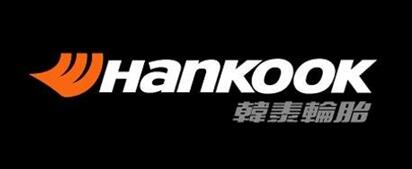Hankook Tire sued by Hubei enterprise for monopoly
Hankook Tire was put in the dock by Wuhan-based Hanyang Guangming Trade Co., Ltd. as it was suspected of agreement monopoly and abuse of market dominance.
Shanghai Intellectual Property Court has accepted the antitrust lawsuit. It is the first antitrust civil lawsuit in China’s tire industry.

Refusing transaction during cooperation
Hanyang Guangming and Hankook Tire inked in Jan. 2012 a Special Dealer Contract, under which the former became a qualified franchise agent of Hankook Tire in Hubei province, effective from Jan. 1, 2012 to Dec. 31, 2018.
Yang Xiongjie, an official with Hanyang Guangming, said from 2012 to 2016, his team developed more than 600 retail outlets in Hubei, however, Hankook Tire refused to pay the bounty as it had promised and unilaterally terminated the supply since May 2016 without any written notice or terminating the contract.
Opaque incentive policy
According to the litigant, Hankook Tire deducted acceptance of interests of over 1 million yuan from Hanyang Guangming while calculating the bounties.
Hankook Tire sold some specific products in specific regions at high prices to the agents, but requested the agents sell the products to retailers at the lowest prices required, which were lower than their purchase prices.
At the same time, Hankook Tire set up targeted sales volume, promising to give bounties when the agents met the targets, so as to offset their losses and make some profits.
However, the incentive policy was opaque. When the agents asked for the bounties, Hankook Tire refused to pay.
China agents pay the bill
According to Hanyang Guangming, Hankook Tire also forced them to sell poor sellers, and bound the targets of sales volume with sales bounties.
Once the contracts were terminated, Hankook Tire was exempted from the bounties and requested the agents to bear the interests on the acceptance that did not exist actually.
An antitrust expert indicated that by controlling the source of goods, Hankook Tire controlled the prices, volume and other trade terms of its tires, and further locked the downstream replacement tire market by depending on technical compatibility.
“The lawsuit involves not only monopoly, but also terms of overlord contract. The disputes of contract breach and monopoly are intertwined,” said the expert.
Over the past few years, Hankook Tire made great adjustment to its sales strategy. There are nearly 3,000 replacement tire retailing outlets of the company in China, and its wholly-owned subsidiaries are taking over the retailing outlets to maximize the profits.
On Apr. 12, 2016, Hankook Tire got an administrative penalty by Shanghai Municipal Development and Reform Commission due to aforesaid monopoly conducts.
- Tireworld Insight: Domestic tire makers eye overseas expansion
- Tireworld Insight: Price disparity severe between China's rubber exports and imports
- Tireworld Insight: China tire exports dependent on US market performance
- Tireworld Insight: SHFE rubber expected to move in tight range in short-term
- Tireworld Insight: Rubber futures to test near-term resistance at 15,000 yuan/tonne
- Tireworld Insight: China’s tire industry on track of rapid growth






